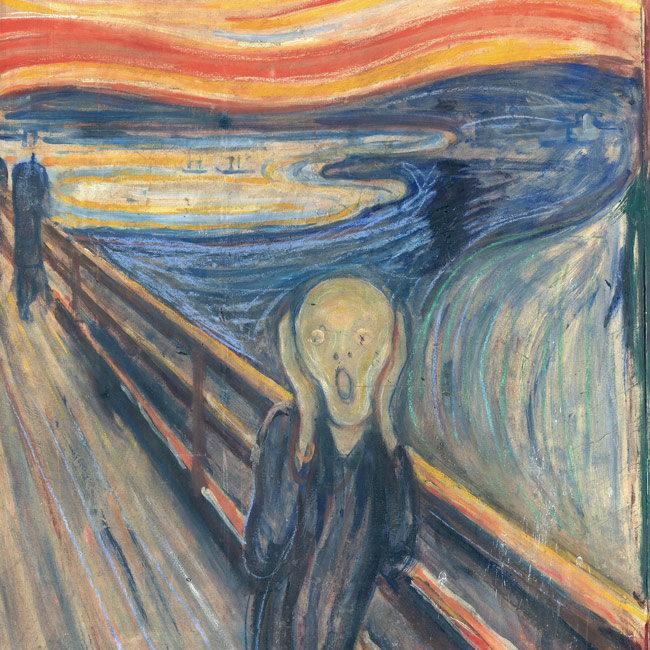For My Young Friends Who Are Afraid
There is a country to cross you will
find in the corner of your eye, in
the quick slip of your foot–air far
down, a snap that might have caught.
And maybe for you, for me, a high, passing
voice that finds its way by being
afraid. That country is there, for us,
carried as it is crossed. What you fear
will not go away: it will take you into
yourself and bless you and keep you.
That’s the world, and we all live there.
William Stafford
A note from Rulik
For My Young Friends Who Are Afraid by William Stafford is so relevant in these days of pandemic and uncertainty. Yet, it was always relevant. The poem affirms that being alive IS frightening. That fear is very much a part of living on earth, in a body. That fear might be the entry ticket to the land of human beings.
Crossing that country as an activity, and carrying a cross, as a symbolic or real object, are both a curse and a blessing. That tension that helps one decide each day that life with all its tribulations is worth living.
The Buddha’s first noble truth states that life includes suffering. Maybe it equals suffering. Is that what we are afraid of?
Lewis Carroll describes that fear more whimsically in the Lobster Quadrille:
“What matters it how far we go?”
His scaly friend replied,
“There is another shore, you know,
Upon the other side.
The further off from England
The nearer is to France –
Then turn not pale, beloved snail,
But come and join the dance.”
For some, that fear evokes anxiety. A deepening sense of dread that makes it harder and harder to think clearly, to make decisions and to act.
Others descend into depression and lose any sense of meaning. They might even try to limit the suffering by ending their lives.
The poem is so helpful by promising nothing. Yet, as Carroll describes the shore on the other side, Stafford points us to the inner journey beyond fear, using fear as a vehicle or a source of energy. The journey inward, into the privacy and sacredness of your soul leads also to the connection and the togetherness where we all live.
In her Letter to a Young Activist, Clarissa Pinkola Estes also addresses that same fear without promise. She encourages us to see that we were made for that challenge. The very one we are facing. We are not only able to face the frightening reality, but we actually can find meaning and purpose in the terrifying world, just as it is. This is a bit like the Little Engine that Could.
It is especially hard to be a young person in today’s world. Many things are declining, many economic, social and natural processes are out of control and hard to predict. The promise of science and technology that sustained some people since the industrial revolution might be evaporating. What is there to look forward to?
Pema Chodron teaches how to overcome fear:
“Once there was a young warrior. Her teacher told her that she had to do battle with fear. She didn’t want to do that. It seemed too aggressive; it was scary; it seemed unfriendly. But the teacher said she had to do it and gave her the instructions for the battle. The day arrived. The student warrior stood on one side, and fear stood on the other. The warrior was feeling very small, and fear was looking big and wrathful. They both had their weapons. The young warrior roused herself and went toward fear, prostrated three times, and asked, “May I have permission to go into battle with you?” Fear said, “Thank you for showing me so much respect that you ask permission.” Then the young warrior said, “How can I defeat you?” Fear replied, “My weapons are that I talk fast, and I get very close to your face. Then you get completely unnerved, and you do whatever I say. If you don’t do what I tell you, I have no power. You can listen to me, and you can have respect for me. You can even be convinced by me. But if you don’t do what I say, I have no power.” In that way, the student warrior learned how to defeat fear.”
from When Things Fall Apart: Heart Advice for Difficult Times
Slow down… look around… name your fear… then look straight at it.
Rely on your resources: read this poem, slowly, deeply. Read the Letter from Clarissa; remember the first noble truth.
That’s the world, and we all live there… together.


